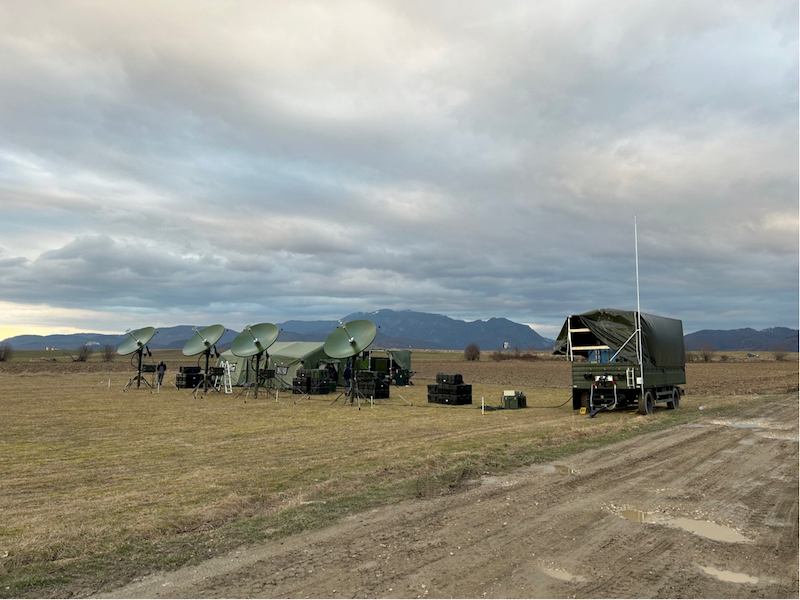The defense industry in Romania is still breathing. Romanian MoD, open to Romanian solutions for modernization programs in the area of communications.

It has already become a habit to point out that, from the production of common gunpowder to the development of armour and aircraft, the Romanian military industry experienced a undesirable decline. One by one, the state’s prominent enterprises shifted towards bankruptcy and ruin, leaving behind a vulnerable defense system.
However, small and medium-sized private companies are starting to show progress. Such development is seen in the field of communications, where more and more companies with private capital are becoming stronger from year to year and selected by the Ministry of Defense for the implementation of upgrading and development programs.
A first such example is the Troposcatter Radio System (TRS) through which MoD wants to ensure a stable and secure backup solution for landline communication services and strategic level IT infrastructure, a project for which three national private companies joined hands to offer the best implementation options.
The TRS solution is developed by Adisam Telecom SA, Rartel SA and StarC4sys SRL with a system integration designed and executed exclusively in Romania, with external support (Canada, USA and Sweden) only on component supply chain.
According to StarC4sys, which provided overall project management, the TRS is designed as a stationary communications node capable of providing critical alternative communications services for the existing Information and Communications Systems (CIS) infrastructure, as well as expanding information technology specific services and communications (TIC) within the Romanian Army's Communications and Informatics System (SCIAR) at deployable communications nodes and base/backup command posts.
Deployable Communications and Informatics (DCIS), another program based on Romanian defense industry companies
A second similar example is the Deployable Communications and Informatics System (DCIS) , a project worth approximately 4 million euros in which also three national firms partnered to meet MoD's requirements.
Stimpex SA, Dendrio Solutions SRL and StarC4sys SRL implemented within 2020-2021 a mobile extension project of the landline networks for a government organization that provided communication and IT services for the deployable structures of its main components.
As a component of a military command center, DCIS has the capability to provide state-of-the-art technology with: three LANs with different classification levels, VHF and UHF communications, X- and Ku-band satellite communications, video conferencing services, Voice over IP services.
The DCIS is able to support itself energetically and can ensure the fulfillment of any mission in special weather and terrain conditions, offering in addition to the work space intended for the three main operators in the cabin the possibility of working from a tent equipped with air conditioning. During manoeuvres, the system is able to pass through deep water and cross a 30% slope carrying full load.
Compared to the national defence industry capacity that Romania held at one point in time and to its present potential, these projects represent only a small part of it.However, they highlight one important thing, namely that a real solution for the revival of this industry can be the state’s stimulation, support and promotion of national private or mixed capital companies.